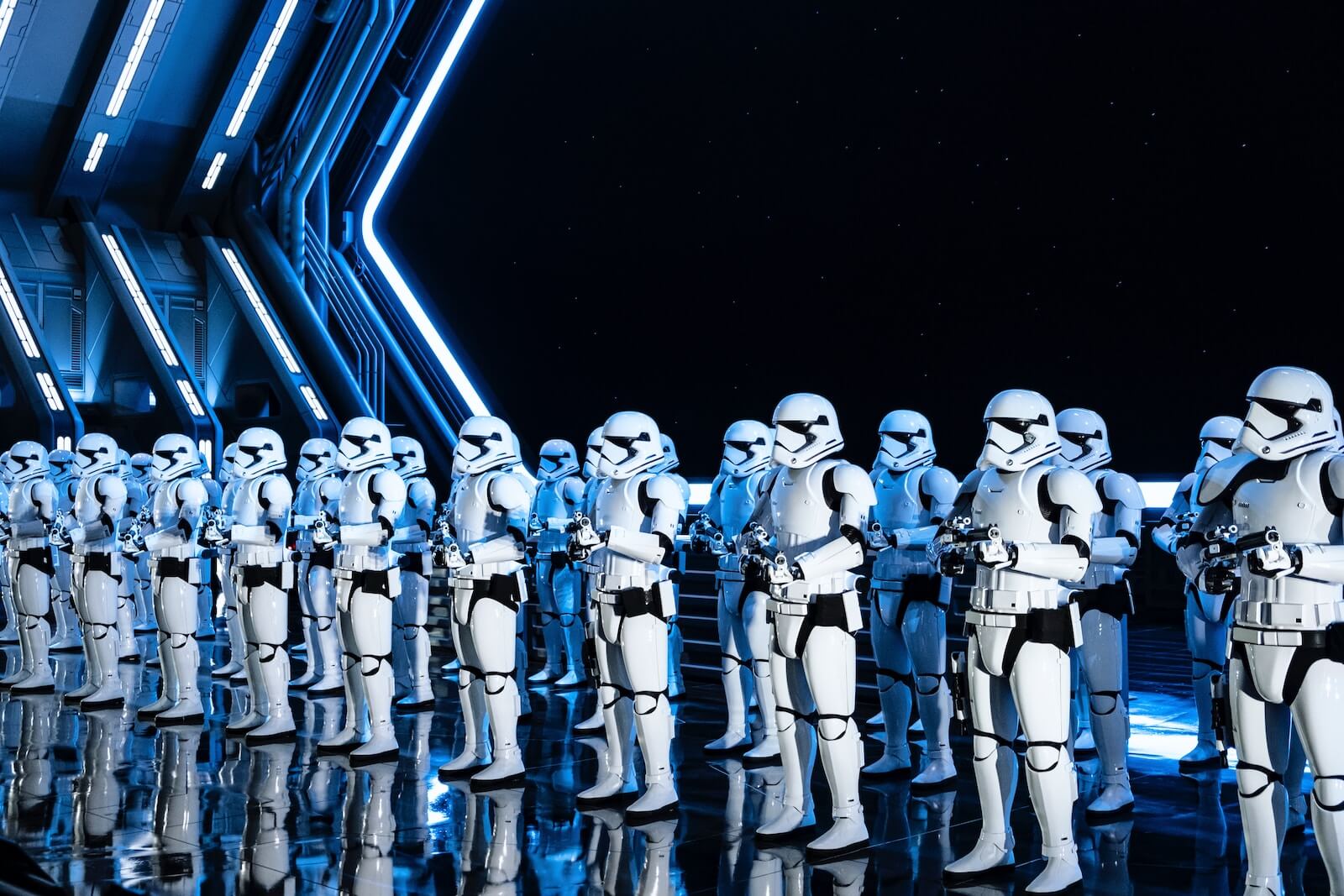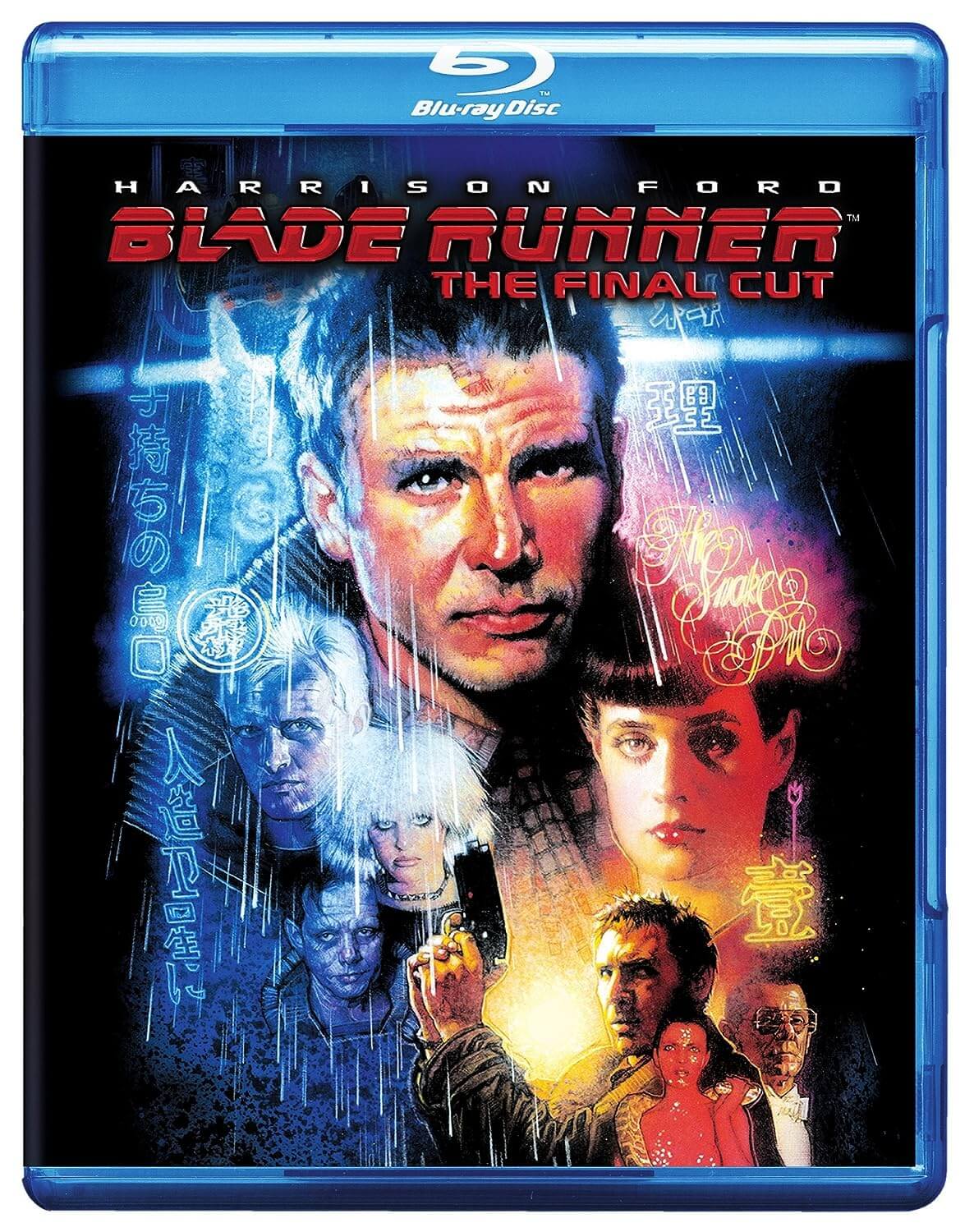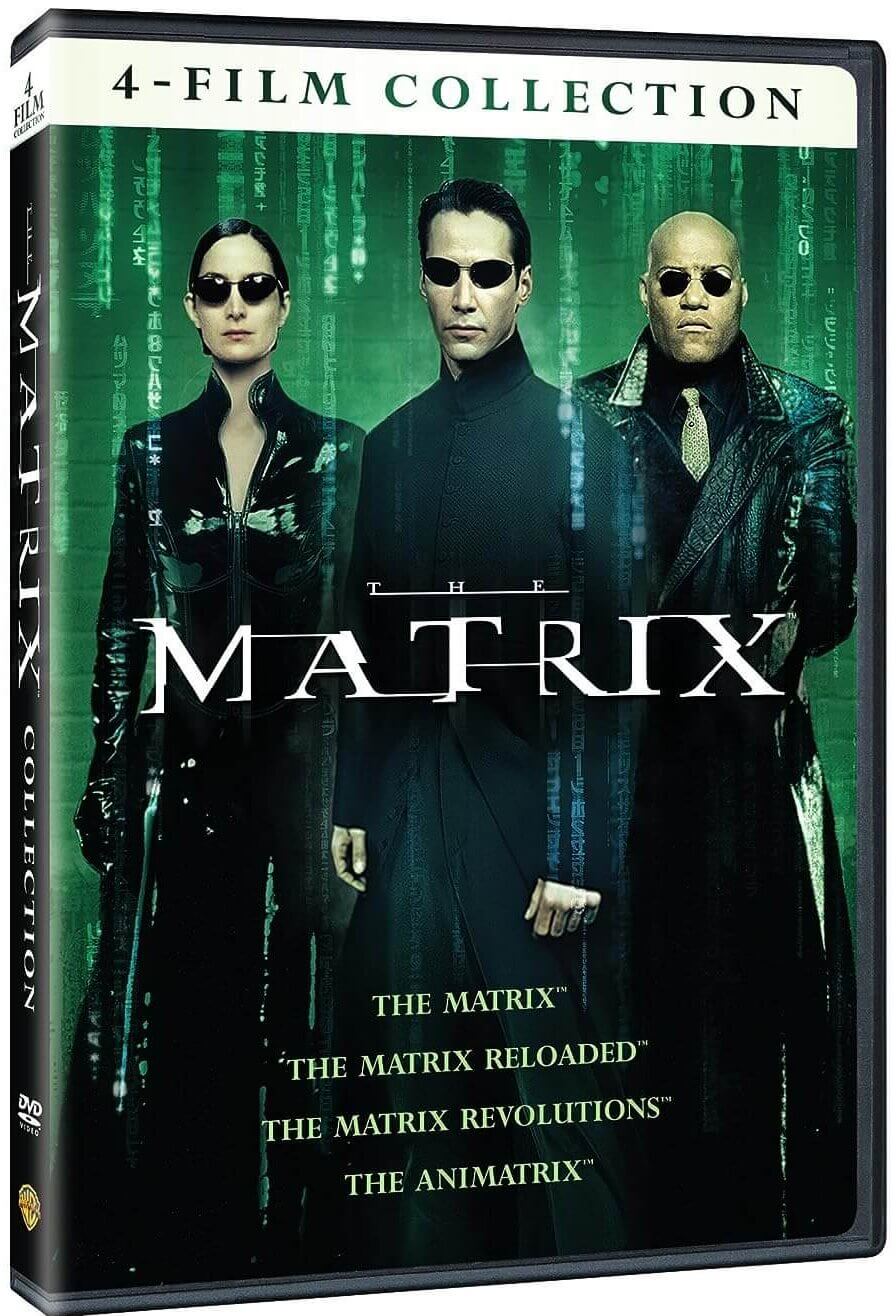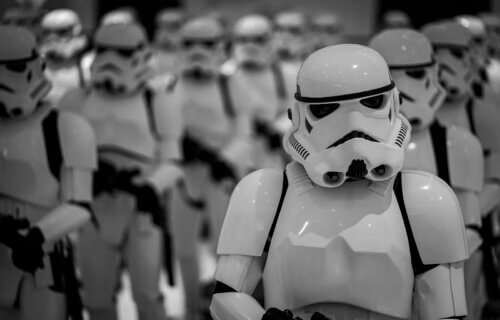Science fiction movies are a popular genre that combines imaginative storytelling with scientific and futuristic elements. These films often transport viewers to worlds beyond our own, exploring advanced technologies, extraterrestrial life, and the impact of scientific advancements on society. This genre started as early as 1902 with Georges Méliès’ science fiction film, “A Trip to the Moon,” which featured a group of astronomers who traveled to the moon and kidnapped one of its lunar inhabitants. The silent picture thrilled audiences and opened the door for more space-themed films to come. From 1902 to 2023, there has certainly been a fair share of sci-fi movies produced. With franchises like “Star Wars” dominating the genre and other hits like “Everything, Everywhere, All At Once” hitting it big at the 2022 Academy Awards, there is nothing if not a plethora of great films to pick from. This only makes our job harder at narrowing it down to the best science fiction movies of all time!
But before we dive in, let’s talk about what makes sci-fi such an intriguing genre. Unlike most genres where art imitates life, the sci-fi genre featuring alien life and a futuristic Earth is open to so many different interpretations. Because of this, instead of art imitating life, in the sci-fi world, life can sometimes go on to imitate art. Take, for instance, just last year, when a “Star Trek”-style detector here on Earth was said to act like “long-range sensors” and spot alien spaceships traveling through the Milky Way galaxy. Researchers with New York think tank Applied Physics say the device picks up gravitational waves—incredibly fast ripples formed by the movement of massive objects. Named LIGO (Laser Interferometer Gravitational-Wave Observatory), the instrument could hold the key to identifying extraterrestrials’ mega-technology! LIGO could possibly point out “warp drives,” the same theoretical engines that fueled the USS Enterprise’s interstellar missions in the cult TV series. However, they would only have to come within about 326,000 light-years of Earth for LIGO to spot their waves. More sensitive machines are already in the planning stages, and they would extend the range even further. It sounds like the plot of a J.J. Abrams movie, doesn’t it?
Another instance where life is imitating art comes in the form of a new “Terminator”-like liquid metal being developed in China. James Cameron’s 1991 film “Terminator 2: Judgment Day” is considered a cinematic classic, in large part due to its iconic villain: a vicious killer robot capable of morphing into liquid form and taking on various shapes and sizes. Now, it seems that Cameron’s take on the future of robotics may very well be on its way to coming true. Chinese researchers have developed a new liquid metal capable of being moved and stretched through the use of magnets. With this breakthrough, the possibility of creating a real-life shape-shifting robot like the one portrayed in the “Terminator” movies becomes more real. Imagine a robot that can seamlessly adapt to its environment by changing its shape and size, making it highly versatile and adaptive. It is both fascinating and slightly scary to think about how these advancements in technology could be used.
Are you fascinated by the storylines that take place within the science fiction universe? Luckily, we at StudyFinds feel the same, which is why we have set out to research across multiple expert sources to bring you the top five best science fiction movies of all time. Don’t agree with our list? We would love to hear from you in the comments down below! Now onto the list!

The List: Best Science Fiction Movies, According to Experts
1. “2001: A Space Odyssey” (1968)
“2001: A Space Odyssey” is a visionary science fiction film directed by Stanley Kubrick, released in 1968. Set in the not-so-distant future, the film explores the profound impact of a mysterious monolith on human evolution, taking viewers on a mesmerizing journey through time. “‘2001: A Space Odyssey’ is so close to being the best science fiction film ever made, but it is undoubtedly the most important. Audiences can track the evolution of sci-fi by breaking it down into two categories: before ‘2001’ and after ‘2001’. The Stanley Kubrick masterpiece is perhaps the defining film of the 1960s and arguably the first modern sci-fi film, in terms of technology, special effects, narrative, and ideas,” writes MovieWeb.

“‘2001’ hits absolutely everything: space spectacle (the work within the work), AI (the double), fever sequences (contamination of reality by dream), and time travel (voyage through time). It hits all these themes, and it hits them in an original and (still today) salient manner. A goddamn classic for a reason,” raves Men’s Health.
“Like so many of the best films on this list, ‘2001’ feels alien. It has shape, weight, and a clear sense of itself. We leave it knowing we’ve seen something truly awesome, even if we can’t quite articulate what exactly we saw. Stanley Kubrick’s dizzying achievement towers in this pantheon of a film like the monolith that beguiles its cast, a lush and indelible exploration of ideas that, more than a half-decade later, continue to fascinate: artificial intelligence, space exploration, and the evolution of consciousness. So, too, do its audio and visual elements: The awe-inducing blare of ‘Thus Spoke Zarathustra,’ the space station’s humbling grandeur, and the lonely drift of an unleashed astronaut, lost to the cosmos. One of a kind in any genre,” adds EW.
2. “Blade Runner” (1982)
Though not originally a box office success upon its release, this Harrison Ford classic has gained more popularity through time (and through multiple new cuts). “What sci-fi film can best Ridley Scott’s genre classic ‘Alien’? His other genre classic, the unbeatable ‘Blade Runner—an initially misunderstood masterpiece that, over multiple decades and several recuts, stands as the pinnacle of cinematic science fiction. Based on Philip K. Dick’s ‘Do Androids Dream of Electric Sheep?’, ‘Blade Runner’ conjures a bleak vision of a then-future 2019 Los Angeles—an imperious flame-belching hellscape in which Harrison Ford’s ‘blade runner’ cop Rick Deckard is tasked with tracking down a group of human-engineered Replicants who have escaped back to Earth from a working colony,” describes Empire.

“Pluck any quote from the mouth of Rutger Hauer’s Roy Batty, and you’ll land upon a classic. ‘It’s not an easy thing to meet your maker,’ for instance. He speaks as a human-engineered replicant, of course, but try turning that concept back on ourselves—what would we do if we met our creator? The ideas overflow in Ridley Scott’s sci-fi masterpiece, But it’s not all philosophy; ‘Blade Runner’ is a spectacle, its choked, dystopian, post-capitalist cityscapes growing more and more familiar as the years pass. The film’s exquisite clutter extends to its eccentric ensemble, a collection of enigmas that brim with weariness and wonder,” says EW.
“It’s a film that, upon first viewing, feels almost unbearably harsh and claustrophobic, lingering on images of cruelty, decay, and exploitation. It was only years later, abetted enormously by the film’s ‘Director’s Cut’ reissue, stripped of its clunky voiceover and crass happy ending, that we began to realize exactly what ‘Blade Runner’ was offering alongside its spectacular visuals. This wasn’t just a grim dystopian action flick, but a meditation on the meaning of life, morality, memory, creation, procreation, nature, nurture—the whole shebang,” adds TimeOut.
3. “Alien” (1979)
In space, no one can hear you scream, but back on Earth, people have been screaming their lungs out for over 40 years at the sight of the Xenomorph from “Alien.” Released right at the end of the ’70s, “It’s fitting that, of all things, Ridley Scott’s ‘Alien’ feels in many ways unknowable, filled with elements that feel genuinely, well, alien. As the Nostromo touches down on the ravaged surface of LV-426 and discovers a mysterious hall filled with extraterrestrial eggs, it’s clear the human crew is well out of their depth, and once their quarantine measures are broken, all hell breaks loose. There’s a warning in there somewhere. From the dark, dank corridors of its space freighter ship to the unmistakable nightmare imagery of H.R. Giger to the arrival of Sigourney Weaver’s heroic Ripley, the original ‘Alien’ remains a landmark piece of science fiction, let alone its innovations in horror. Some science fiction makes us dream of the stars. Alien warns us of the sheer violent chaos awaiting us in the vast reaches of outer space,” comments Empire.

“As much a horror movie as it is science fiction, ‘Alien’ introduces one of the most iconic and viscerally scary movie monsters of all time. Just as notably, director Ridley Scott influenced generations of filmmakers to come by creating a wet, grimy, lived-in future that contrasted against the idealized, chrome-plated worlds of its sci-fi contemporaries,” reports Looper.
“It’s the endless expanse that sets the stage—the sense that, despite being surrounded by so much open space, there is absolutely nowhere to run. There’s no dialogue for the first six minutes of ‘Alien’, nor is there music. It’s just ambient sound, as cold and alienating as the crowded, grimy halls of the Nostromo, cinema’s most notorious intergalactic haunted house. All the crew—an out-of-this-world ensemble consisting of Tom Skeritt, John Hurt, Yaphet Kotto, and, of course, Sigourney Weaver—has is each other, so when a worm bursts from their buddy’s stomach and begins picking them off one by one, the ugly, pipe-strewn walls close in. Director Ridley Scott embraces the claustrophobia, embedding his Xenomorph into the fabric of the ship and, by extension, our nightmares,” notes EW.
4. “Star Wars: Episode V – The Empire Strikes Back” (1980)
There are fewer sequels as iconic and outstanding as the sequel to 1977’s “Star Wars: A New Hope.” With more Jedi lore, a bigger budget, and better special effects, “Empire” had everything working for it to be one of the best. “‘The Empire Strikes Back’ takes the ‘escape your hometown’ joyride aspects of its groundbreaking predecessor and adds an adult sensibility and thematic throughline that bring a real depth to George Lucas’ galaxy far, far away. While one hesitates to use the well-worn terms ‘dark’ and ‘stylish’ when describing director Irvin Kershner’s installment in the series, the film nonetheless is the darkest and most stylish of the ‘Star Wars’ movies,” says IGN.

“The continuation of the epic space opera, ‘The Empire Strikes Back,’ follows the battle between the rebels led by Princess Leia and the Empire under Emperor Palpatine. Meanwhile, Luke trains with Jedi Master Yoda to learn how to use the Force in preparation for his climactic confrontation with the powerful Sith Lord, Darth Vader. There are several iconic moments from the highest-rated ‘Star Wars’ film that explain why it’s still a beloved entry in the franchise. It further fueled the cultural phenomenon that would stick around long after the 80s, as it continues to inspire fan clubs, spinoffs, parodies, merchandise, and more,” adds Collider.
“‘The Empire Strikes Back’ is Exhibit A in the category of sequels that surpass the original, taking the wondrous world we were granted in ‘A New Hope’ and deepening, expanding its purview in every direction. It gives flesh to the idea of the ‘Rebel Alliance,’ showing us how this ragtag band of freedom fighters operates while slowly winning the ideological battle and drawing more support to their cause. Every character undergoes positive growth. The mysticism and wonder of ‘Star Wars’ are at their zenith in ‘Empire’,” raves Paste.
5. “The Matrix” (1999)
“The Matrix” is a science fiction film set in a dystopian future where intelligent machines have enslaved humanity. Though there are multiple films in the franchise, it’s the original that has stood the test of time and been ingrained in pop culture. “Most fans would agree that the Wachowskis’ first entry in ‘The Matrix’ franchise is still the best one. ‘The Matrix’ introduced viewers to Thomas Anderson (Keanu Reeves), who goes by his hacker name ‘Neo, an unassuming computer programmer who learns the truth about his simulated reality. He soon joins forces with the resistance to free others from the manipulation and control of extraterrestrial beings. The film won numerous accolades and is known for its novel concepts and cutting-edge visuals. Even those who have never seen the movie before may recognize its cyberpunk imagery and ‘bullet time’ moments that have become an irreplaceable part of cinematic history,” writes Collider.

This “stone-cold stunner sci-fi actioner broke all the rules, captured the zeitgeist, and snagged four Academy Awards (notably beating ‘Star Wars: The Phantom Menace’ for visual effects and ‘American Beauty’ for film editing). With every trip down the rabbit hole, ‘The Matrix’ loses none of its allure or heart-pounding excitement,” adds Parade.
“At the dawn of the Internet age, the Wachowskis gave Hollywood science fiction a major upgrade. Drawing from cyberpunk anime, philosophy, and religion, the sisters cooked up an era-defining tale that spoke to generational malaise, the rise of technology, and a pre-millennial society ready to break out of its long-held programming. It’s one of the coolest films ever made, deeply stylish, and incredibly visionary. Plus, it has a whole new layer of meaning in its reassessment as a piece of blockbuster queer cinema, a story exploring the idea that internal and external realities may be different, coming from a pair of trans creators. In a word, woah,” concludes Empire.
You might be interested in:
- Best Science Fiction Books
- Best Star Wars Movie
- Best Star Trek Movies
- Best Horror Films
- Best Fantasy Movies
Sources:
Note: This article was not paid for nor sponsored. StudyFinds is not connected to nor partnered with any of the brands mentioned and receives no compensation for its recommendations.
